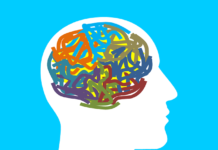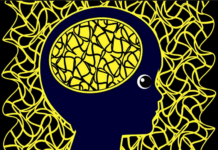Yearly Archives: 2019
In Deprived Areas, Depression Hits Men Harder
From BBC Worklife: Men living in the most deprived areas were 51% more likely to experience depression than those living in non-deprived areas. For women, the results did not reach statistical significance.
Involuntary Hospitalization More Likely With Psychosis Diagnoses and Few Resources
New study links involuntary hospitalization with psychotic diagnosis, previous involuntary hospitalization, and economic deprivation.
The Darker the Night, the Brighter the Light: Five Lessons Learned This Month
One month ago I suddenly found myself in a very dark place. There is a depth of wisdom that comes from dark or challenging emotional states, that with good support and hard work looking at the underlying (and sometimes ancient) dynamics can lead to enormous insights and compassion.
Rates of Opioid Use Remain High Among US Adolescents
Researchers investigate trends in opioid use, prescriptions, misuse, and access reported by adolescents and young adults.
How Race and Class Impact Schizophrenia and Substance-Use Diagnoses
A new article explores how psychiatric diagnoses are differentially applied to people of different racial and class backgrounds.
Seven Strategies to Avoid Retraumatization While Working with Psychosis
Stories related to psychosis can be intense, and can lead to traumatic recall when a sufferer retells them and does not feel contained or believed within the relationship. I have a number of suggestions for how to encourage the telling of stories without retraumatizing survivors in group settings and in individual encounters.
People in Mental Health Units Need a Voice. That’s Why I’m Helping Them to...
From The Guardian: "Mentally ill" and other disabled people have a disproportionate exposure to the workings of the (often violent) state – that’s why it’s so important our voices are heard.
Dissecting the DSM Debate: Researchers Analyze Critiques Across Audiences
A new study systematically explores critical reactions to the DSM-5 and identifies unifying themes.
The Killing of Susan Kelly by Dorothy Dundas
The dark-suited man slithered,
Shock box in hand,
To our bedsides, four girls, innocent, naked,
Waiting….waiting….waiting,
Sticky-headed,
One by one.
Despite Claims, EPA Supplement Does Not Improve ADHD Symptoms in Youth
A new study reports that the supplement EPA improved ADHD symptoms but a closer look calls these results into question.
Donate Books to the World’s First Antipsychiatry Library
From the Coalition Against Psychiatric Assault: The Toronto Antipsychiatry Lending Library is seeking non-fiction books, literature, magazines, and films relevant to the related areas of antipsychiatry, critical psychiatry, and mad studies.
Reflections on a Decade of Assertive Community Treatment
Sometimes I am crazy and sometimes I need help, but that help must not be forced upon me. I need to direct my own care; I need to be listened to. ACT is a method of social control that has more to do with saving money than assisting those in need. Money is saved by turning patients' homes into hospitals.
500% Increase in Irish Children Prescribed Psych Drugs Over Past Decade
From the Irish Examiner: The trend is out of sync with the same stats for the general population, which has seen only a 12% rise in the same time frame.
MIA at Eight Years: Are We Fulfilling Our Mission?
Mad in America is about to turn eight years old, and as we are launching a fundraising effort to keep us going through 2020, I think it’s appropriate to ask the relevant question: Are we accomplishing what we set out to do?
Parachute NYC Peer Support Program Presents Challenges and Opportunities
Anthropologists study Parachute NYC to identify challenges and opportunities for implementing peer support and Open Dialogue practices.
Seclusion and Isolation Rooms Misused in Illinois Schools
From the Chicago Tribune: Children are being locked away, alone and terrified, in schools across Illinois. Often, it's against the law.
New CDC Data Underscores Need to Address Adverse Childhood Experiences
New prevention strategies are needed based on our increasing understanding of the impacts of Adverse Childhood Experiences (ACEs).
On Human Rights and Surviving Race: A Conversation with Celia Brown
An interview with Celia Brown: psychiatric survivor, human rights activist, and president of MindFreedom International.
Obituary: Heather Ashton, Creator of the Ashton Manual
From The Guardian: Ashton developed an approach to benzodiazepine withdrawal that supported the patient to control the rate at which the dose was tapered, often taking months or even longer.
No Matter Which Measure You Use, Antidepressants Aren’t That Effective
Researchers compared the efficacy of antidepressants using different rating scales and found them to be no different—just slightly better than placebo, and not meeting the criteria for clinical significance.
Anthropologists Contemplate the Future Role of Psychiatry
Anthropologists who study the psychiatric field recently had papers published in two highly influential journals. While they both call for or describe reform initiatives, they point us in different directions with regard to the future role of psychiatrists. With a shift in resources, might psychiatry finally get it right?
FDA’s Rapid Approval of Esketamine for Severe Depression Questioned
From Medscape: In an editorial in Lancet Psychiatry, Erick H. Turner, MD, said the drug did not meet standard criteria for FDA approval and there was little evidence to support its safety and efficacy.
Psychotherapy Less Effective for People in Poverty and Those on Antidepressants
A new study finds poorer depression and anxiety outcomes in psychotherapy for people in economically deprived neighborhoods and those on antidepressants.
U.S. Must Provide Mental Health Services to Families Separated at Border
From The New York Times: The ruling marks a rare instance of the government being held legally accountable for mental trauma brought about by its policies.
Increased Antidepressant Use Does Not Decrease Depression Prevalence in Older Adults
The use of antidepressants has risen quickly among older adults but the rate of depressive symptoms in this population has not declined as a result.

































